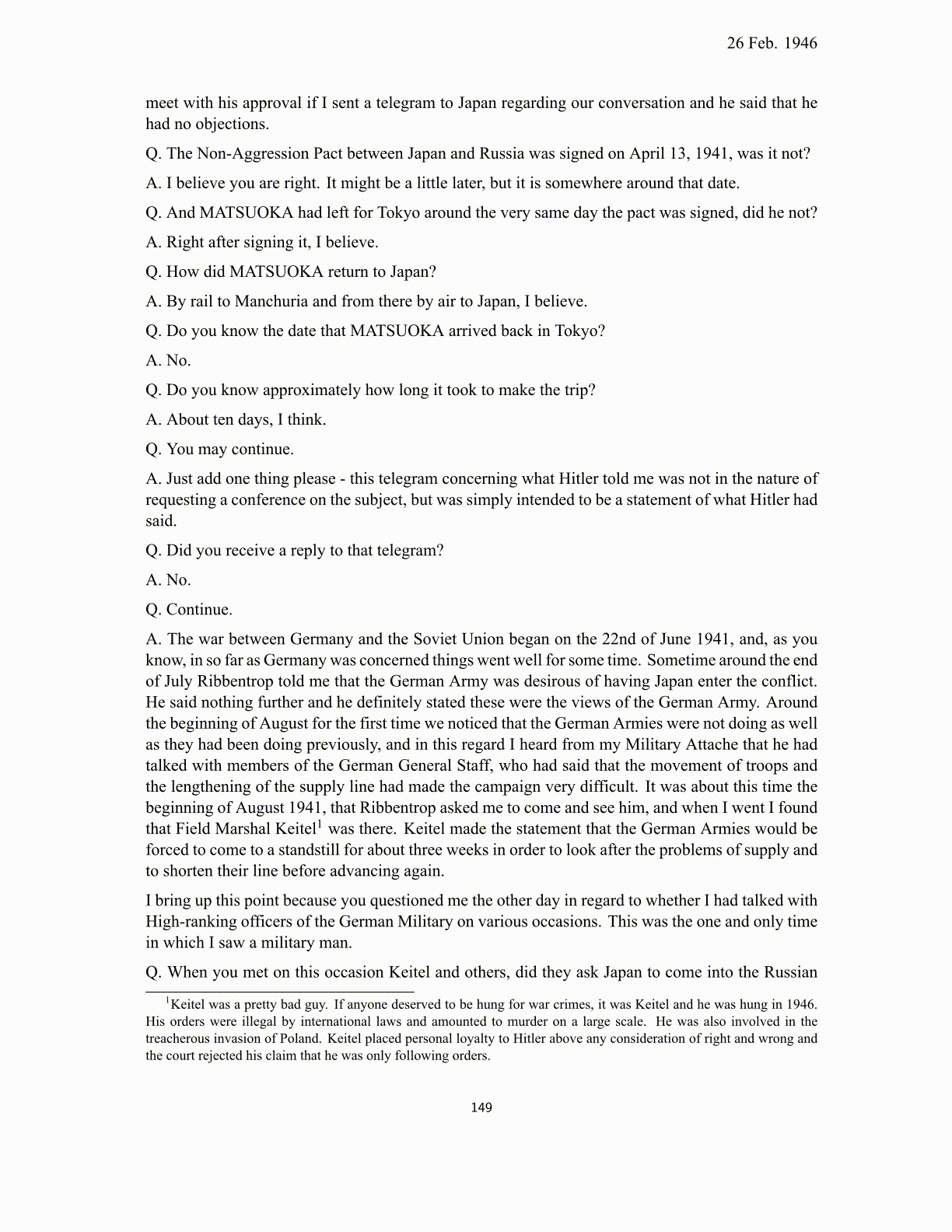
26 Feb. 1946 meet with his approval if I sent a telegram to Japan regarding our conversation and he said that he had no objections. Q. The Non-Aggression Pact between Japan and Russia was signed on April 13, 1941, was it not? A. I believe you are right. It might be a little later, but it is somewhere around that date. Q. And MATSUOKA had left for Tokyo around the very same day the pact was signed, did he not? A. Right after signing it, I believe. Q. How did MATSUOKA return to Japan? A. By rail to Manchuria and from there by air to Japan, I believe. Q. Do you know the date that MATSUOKA arrived back in Tokyo? A. No. Q. Do you know approximately how long it took to make the trip? A. About ten days, I think. Q. You may continue. A. Just add one thing please - this telegram concerning what Hitler told me was not in the nature of requesting a conference on the subject, but was simply intended to be a statement of what Hitler had said. Q. Did you receive a reply to that telegram? A. No. Q. Continue. A. The war between Germany and the Soviet Union began on the 22nd of June 1941, and, as you know, in so far as Germany was concerned things went well for some time. Sometime around the end of July Ribbentrop told me that the German Army was desirous of having Japan enter the conflict. He said nothing further and he definitely stated these were the views of the German Army. Around the beginning of August for the first time we noticed that the German Armies were not doing as well as they had been doing previously, and in this regard I heard from my Military Attache that he had talked with members of the German General Staff, who had said that the movement of troops and the lengthening of the supply line had made the campaign very difficult. It was about this time the beginning of August 1941, that Ribbentrop asked me to come and see him, and when I went I found that Field Marshal Keitel 1 was there. Keitel made the statement that the German Armies would be forced to come to a standstill for about three weeks in order to look after the problems of supply and to shorten their line before advancing again. I bring up this point because you questioned me the other day in regard to whether I had talked with High-ranking officers of the German Military on various occasions. This was the one and only time in which I saw a military man. Q. When you met on this occasion Keitel and others, did they ask Japan to come into the Russian 1 Keitel was a pretty bad guy. If anyone deserved to be hung for war crimes, it was Keitel and he was hung in 1946. His orders were illegal by international laws and amounted to murder on a large scale. He was also involved in the treacherous invasion of Poland. Keitel placed personal loyalty to Hitler above any consideration of right and wrong and the court rejected his claim that he was only following orders. 149